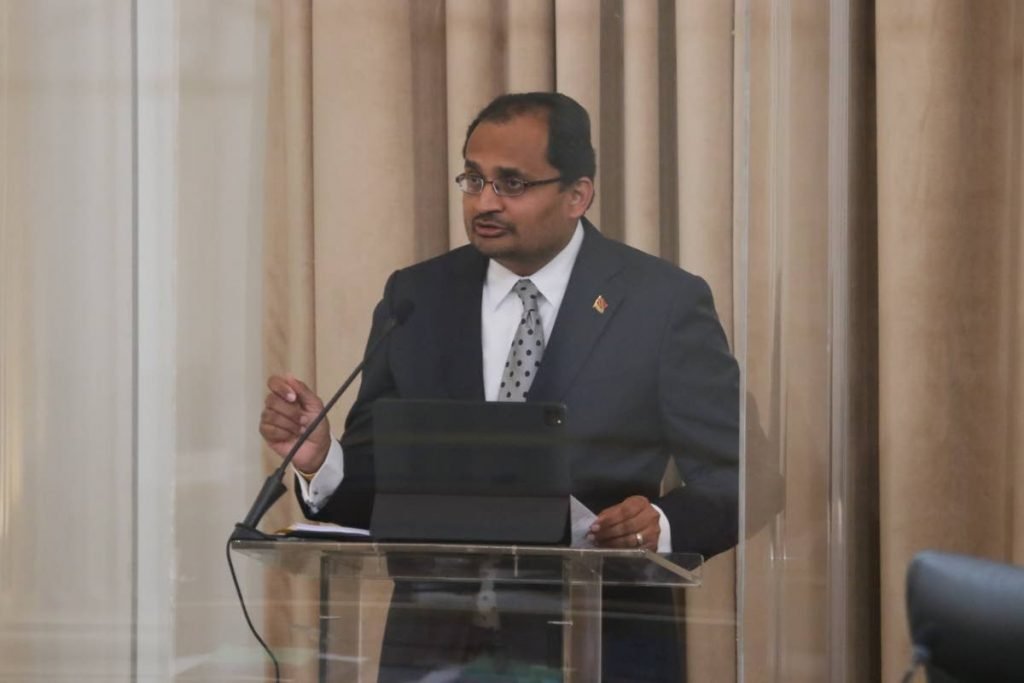Virus vigilance in classrooms

DINESH RAMBALLY
THE GRIM reality of covid19 in TT is inescapable. There are now many known variants and one can definitely expect more mutations to come. Therefore, our response to this virus must be a time-managed one, as the mutations are keeping scientists on edge. As a people we have to stay educated as well as hypervigilant about the new threats being posed by this virus.
We have all become familiar with the health protocols: wear masks, sanitise and physically distance, which I urge my fellow citizens to do unreservedly. However, only recently the Centre for Disease Control (CDC) in the US has confirmed the aerosol method of transmission of this deadly virus, meaning that the lighter virus-containing particles can just hang in the air “for minutes to hours.” As such, someone who is maskless can breathe in such particles long after the maskless, infected person has exhaled them into the air. This is why masks are more important than ever before.
One expert has likened aerosol transmission of the virus like cigarette smoke – most concentrated when you are close to the infected person and dissipates the farther away you get. This is why distancing is also important.
Given that reality, my concern is that students who will be writing their SEA, CAPE and CSEC exams in-person (SEA has been moved to July 1 by the Ministry of Education, with CAPE and CSEC pending). They are likely to be housed in classrooms, and no doubt will be properly distanced. But the question about proper ventilation of enclosed spaces must now be a question of priority for the Ministry of Education. The need to have well-ventilated classrooms in time for exams is greatest now than ever before. According to the CDC:
“As the levels of community transmission increase schools should further strengthen prevention strategies and monitor cases to reassess decisions.”
There are many commonsense recommendations that have been given, including improved ventilation and air filtration of enclosed spaces, especially for toilet areas. The US Environmental Protection Agency has recommended portable air purifiers and air filtration as part of a comprehensive response to fighting covid19: When used along with other best practices, including physical distancing and mask wearing, filtration can be part of a plan to reduce the potential for airborne transmission of covid19 indoors. There is a whole science of air purification, and experts can recommend the size of filter necessary for the space in question and which ones are designed to remove the required particle size.
At the very least, there should be decreased student occupancy per room if ventilation cannot be increased.
The Pfizer vaccine is now approved by the FDA for people 12 years and over. Canada was the first country to authorise the use of the Pfizer vaccine for its 12-15 age group. This is useful information for us considering the need to reopen our schools later this year. We are well aware that schools can be hotspots for virus clusters and rapid spread. We only have to look back at last year’s SEA in-person classes to see how easily classrooms can become hotspots for the virus. Surely, no one wants his or her child exposed, and who then would subsequently expose his or her family. But this is a predictable course, as we are all painfully aware from last year’s false starts.
WHO has approved Sinopharm for people 18 years and older. This means that a fair number of Upper Six and university students, as well as students who will need to go abroad to commence tertiary studies, can be vaccinated during the first rollout. Then there is the Pfizer vaccine which could be given to school-aged children on a preferential basis. This would allow students to attend school in-person, otherwise we will be having the same conversation next year about the SEA, CAPE and CSEC dates all over again.
On the other side of the equation are the teachers. They too should be a highly-prioritised group. If this country decided to treat with this segment of the population accordingly, we would have somewhat contained transmissibility in this sector. I don’t profess to have set out the answers for moving forward. But I certainly hope the discussions can get going with all stakeholders being consulted.
This is a fantastic opportunity for the Ministry of Education to put its shoulder to the wheel and demonstrate that it can respond proactively and constructively towards the students and teachers. This would indeed be a welcome change to the accustomed way of treating with them.
Dinesh Rambally is the MP for Chaguanas West

Comments
"Virus vigilance in classrooms"